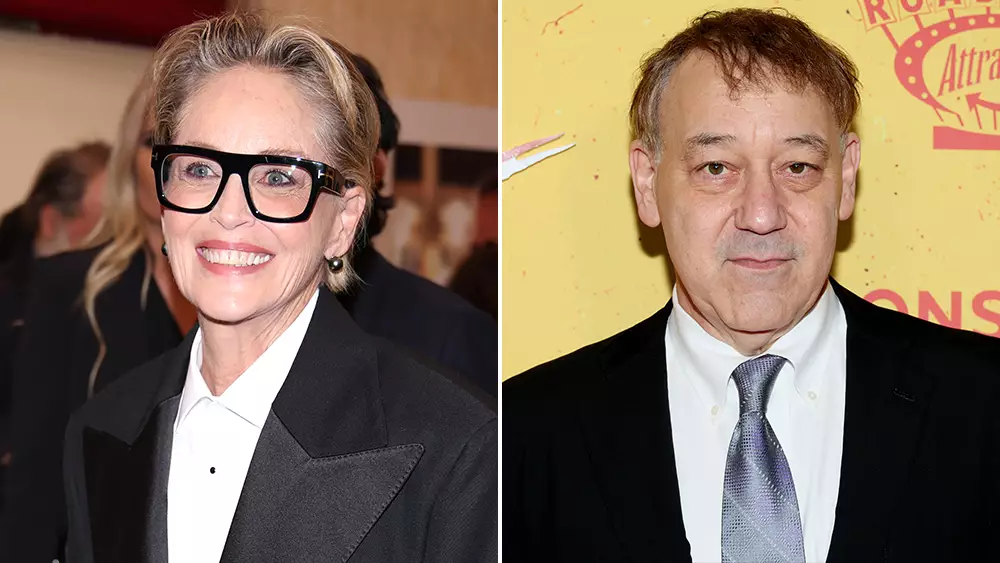Sharon Stone, an icon in Hollywood, recently made headlines during a Q&A at the Torino Film Festival while honoring her work in the 1995 film “The Quick and the Dead.” As she accepted a lifetime achievement award and presented a screening of the film, she opened up about her experiences working alongside director Sam Raimi and compared those to her collaborations with renowned filmmaker Martin Scorsese. Her reflections highlight the complexities of their professional relationships, the gender dynamics prevalent in the film industry, and the significance of artistic legacy.
Stone’s comments on Sam Raimi were striking, as she characterized him as lacking the “loyalty” and familial sense that she found significant in her work with Scorsese. While Raimi gained recognition for his earlier cult films like “The Evil Dead” and “Darkman,” the contrast between him and Scorsese could not be more pronounced in Stone’s eyes. The actress described Scorsese as having a familial approach to filmmaking, suggesting that this loyalty has led to a long-lasting personal and professional bond. In contrast, she observed that Raimi failed to sustain any meaningful relationship after their project, which deeply affected her perspective.
Stone’s experience with both directors illustrates the inherent instability in relationships within the entertainment industry, particularly in the 90s when the power dynamics were still heavily skewed. It’s interesting to consider how this classification of directors reflects broader societal norms of the time, where loyalty and familial connections appeared more prevalent in the works of certain directors over others. Stone’s anecdote serves as a reminder that in a highly competitive industry, personal connections can significantly impact one’s career trajectory.
The Impact of “The Quick and the Dead”
While initially branded as a commercial failure, “The Quick and the Dead” is now celebrated as a cult classic. The film features Stone as a mysterious gunslinger who arrives in Redemption to avenge her father’s death. She brought together a standout cast, including Russell Crowe and Leonardo DiCaprio, both of whom were on the cusp of their eventual rise to stardom. Stone’s active role as a producer demonstrated her commitment to the project and highlighted her abilities to unearth talent.
However, despite her success behind the scenes and her efforts to elevate the film’s appeal, Stone reflected upon the mixed critical reviews at the time of release. This reflects a deeper truth about the film industry; often, innovative and bold projects may not receive the recognition they deserve upon release, only to gain appreciation in hindsight. Stone’s reflections on the film’s transformation over the years also touch upon the relationship between art and audience perception, urging viewers to reconsider their initial judgments.
Gender Discrimination in Hollywood
Stone’s commentary also pointed to the persistent sexism in Hollywood, which she faced while pursuing directing opportunities. Her candid remarks highlight an ongoing issue for female filmmakers, both in the 90s and in contemporary cinema. Despite successfully producing “The Quick and the Dead,” her attempts to move into directing were met with resistance, which she attributed to her gender. This barriers women encounter reflect broader societal challenges, pushing female narratives into the background.
The inequity that Stone faced resonates with many women in the industry, showcasing a struggle for acknowledgment and respect. Her argument that her talents were wasted trying to convince less competent studio heads speaks volumes about the suffocating culture that remains ingrained in the industry dynamics. This discussion serves as a call to action, advocating for the dismantling of systemic barriers that prevent women from fully realizing their ambitions.
Sharon Stone’s reflections at the Torino Film Festival not only underscore her impressive career trajectory but also pose questions about loyalty, gender, and talent in the film industry. Her experiences with Raimi and Scorsese offer insight into professional relationships shaped by both personal connections and the volatile nature of Hollywood. Moreover, her critique of sexism highlights the ongoing challenges faced by women in the industry, serving as a poignant reminder of the work that remains to be done for gender equality.
As Stone continues to carve her path, the legacy she leaves behind reflects both her artistic contributions and her fight against discrimination. The evolution of “The Quick and the Dead” from a box office flop to a beloved piece of cinema serves as a metaphor for the enduring nature of both art and the personal stories that shape it. The complexities of loyalty and legacy in the backdrop of an evolving industry remain relevant themes, allowing Stone’s story to resonate with generations of artists and audiences alike.
